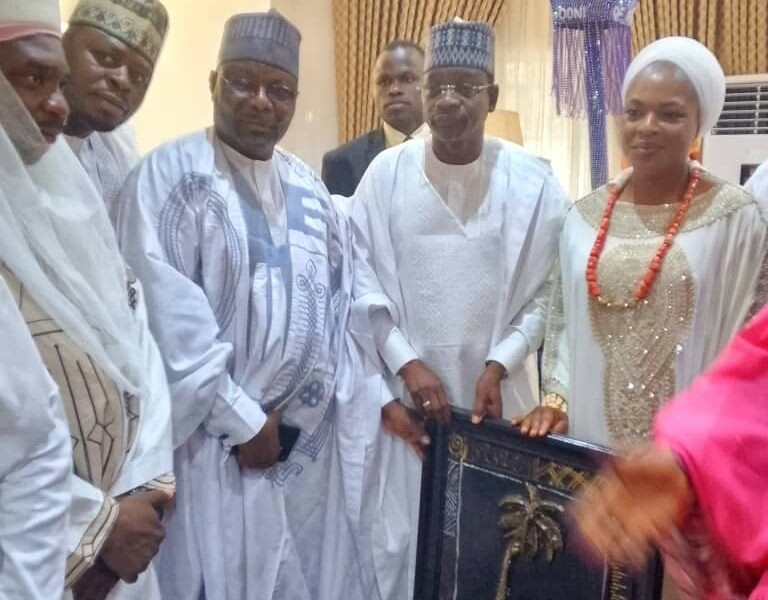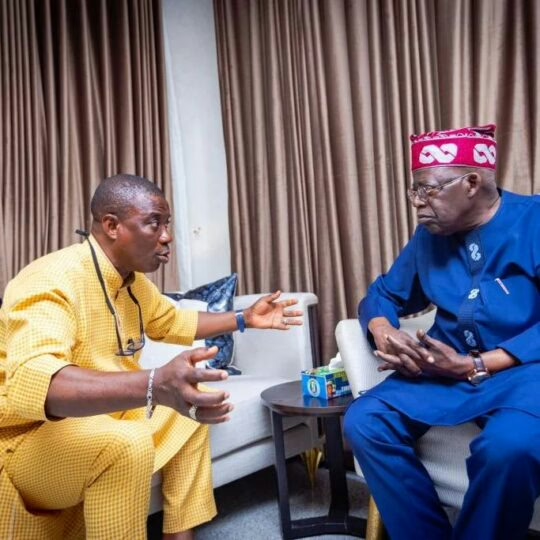A member of the House of Representatives, Babajimi Benson, has said the Defence Industries Corporation of Nigeria Act, 2023 recently signed into law by President Bola Tinubu will end Nigeria’s perennial importation of military hardware, software and other equipment.
Benson, who sponsored the bill, said with the signing, Nigeria might become an exporter of weapons, thereby generating foreign currency.
A copy of the bill obtained by our correspondent shows the bill aims “to regulate and ensure improvement in a local production of weapons and other equipment to meet the requirement of the Nigeria Armed Forces and other security agencies, reduce reliance on foreign suppliers, and develop local capabilities and standardisation through research and development in the defence industry.”
When fully operational, the defence corporation will oversee the operation, maintenance and control of ordnance factories for the manufacture, storage and disposal of materials intended for, or capable of, being used by the armed forces, other security agencies and such other forces or persons as may be authorised.
It provides that the armed forces, police and other security agencies authorised to possess and use weapons or other items categorised as defence items shall “purchase weapons or defence items from the corporation; or from other licensed manufacturers or distributors, where the corporation is unable to supply the items.”
Speaking with Benson, who represents Ikorodu Federal Constituency of Lagos State, described DICON as a backward integration strategy that will eventually pave the way for the exportation of military weapons and others by Nigeria.
He said, “The bill converts DICON into a military-industrial complex. Show me a great country, you will find a military complex therein. Nigeria has been involved in the Boko Haram war for a long while and the lessons learned should not be thrown away. A lot of importation of hardware and software has been made. DICON is like a backward integration strategy. A lot of light weapons and things that are imported into the country will now be manufactured locally. A lot of companies are already looking at platforms where they can come in and invest in the hardware, and software war space. This bill gives them a veritable platform and an easy way to come in and invest. It is a bill that will help conserve foreign exchange and also allow us to export to other countries and help employ labour in Nigeria.”
Going forward, the lawmaker noted that local manufacturing of military equipment will strengthen the naira against the dollar, thus, improving Nigeria’s terms of trade.
“There’s a lot of invention that has taken place in this insurgency war. One of the eaters of our foreign exchange has been the importation of military equipment. Manufacturing these locally will bring down the value because importations are benchmarked against the dollar rate. So, the higher the dollar, the more expensive the naira is to purchase but if you domesticate it, we will make sure that the skills Nigerians have will be deployed into that trade, but with the necessary regulatory framework.
“There is also going to be Foreign Direct Investment because a lot of companies that see Nigeria as a market will be here to manufacture these goods and these goods won’t be used for the Nigerian Army, Navy and Air Force alone but also for the para-military establishments. They wear boots, uniforms and different types of things. It is a whole new level of opportunities for Nigerians,” he added.
That said, the lawmaker assured Nigerians that the 2024 defence budget would be thoroughly monitored to ensure value for money.
“We have had retreats with all the security chairmen to upscale our skills in monitoring. We are fashioning out a model that will ensure thorough and efficient supervision of the defence budget for implementation. There will be policy engagement of ‘following the money.’ Nigeria is hard-pressed at this time and every money must be seen to be judiciously spent. We are going to be on top of our game,” he added.











